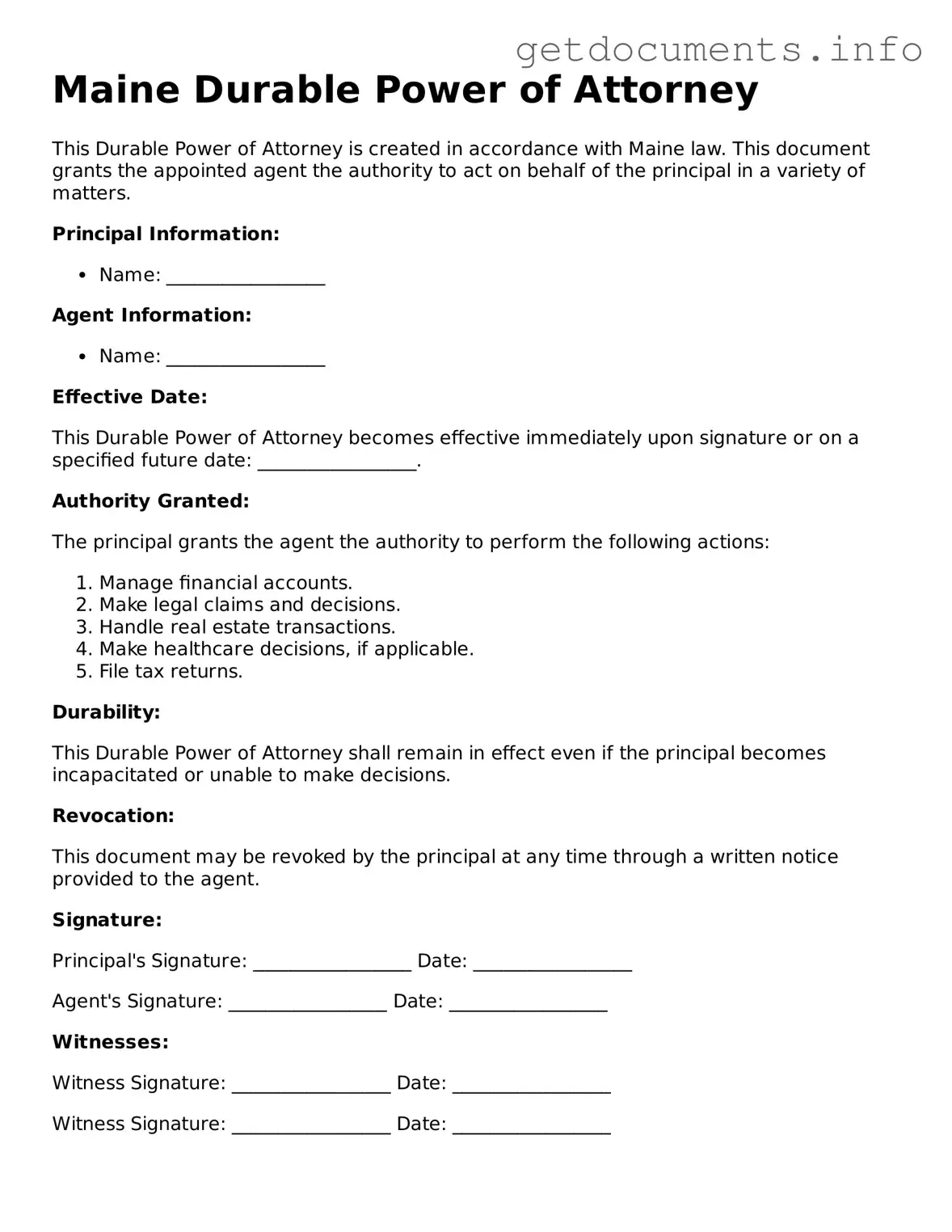Free Durable Power of Attorney Template for Maine
A Maine Durable Power of Attorney form is a legal document that allows an individual to appoint someone else to make decisions on their behalf, even if they become incapacitated. This form ensures that your financial and legal matters are handled according to your wishes when you are unable to manage them yourself. To take control of your future, consider filling out the form by clicking the button below.
Access Durable Power of Attorney Editor

Free Durable Power of Attorney Template for Maine
Access Durable Power of Attorney Editor
Got places to be? Complete the form fast
Fill out Durable Power of Attorney online and avoid printing or scanning.
Access Durable Power of Attorney Editor
or
⇩ PDF File
